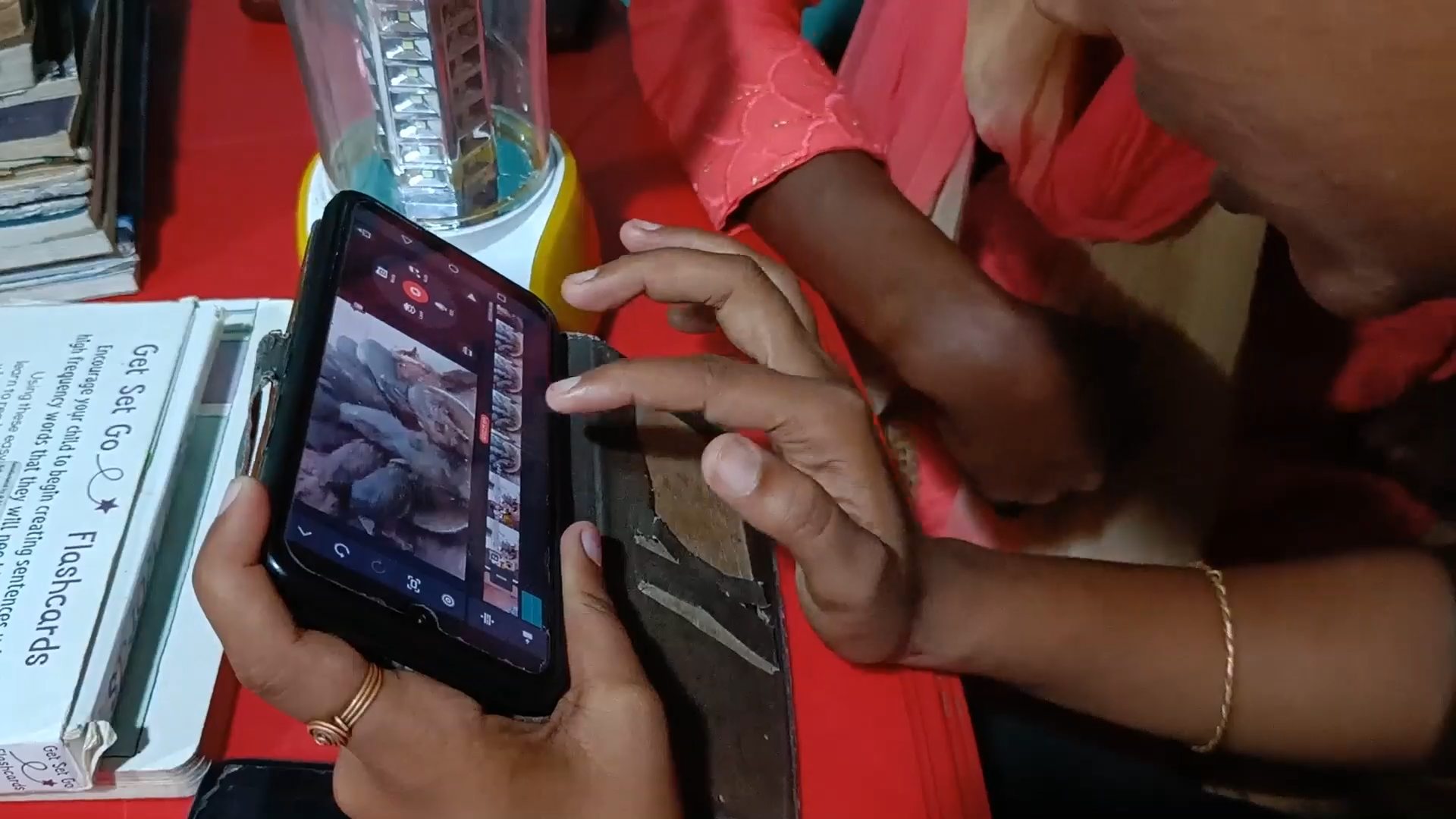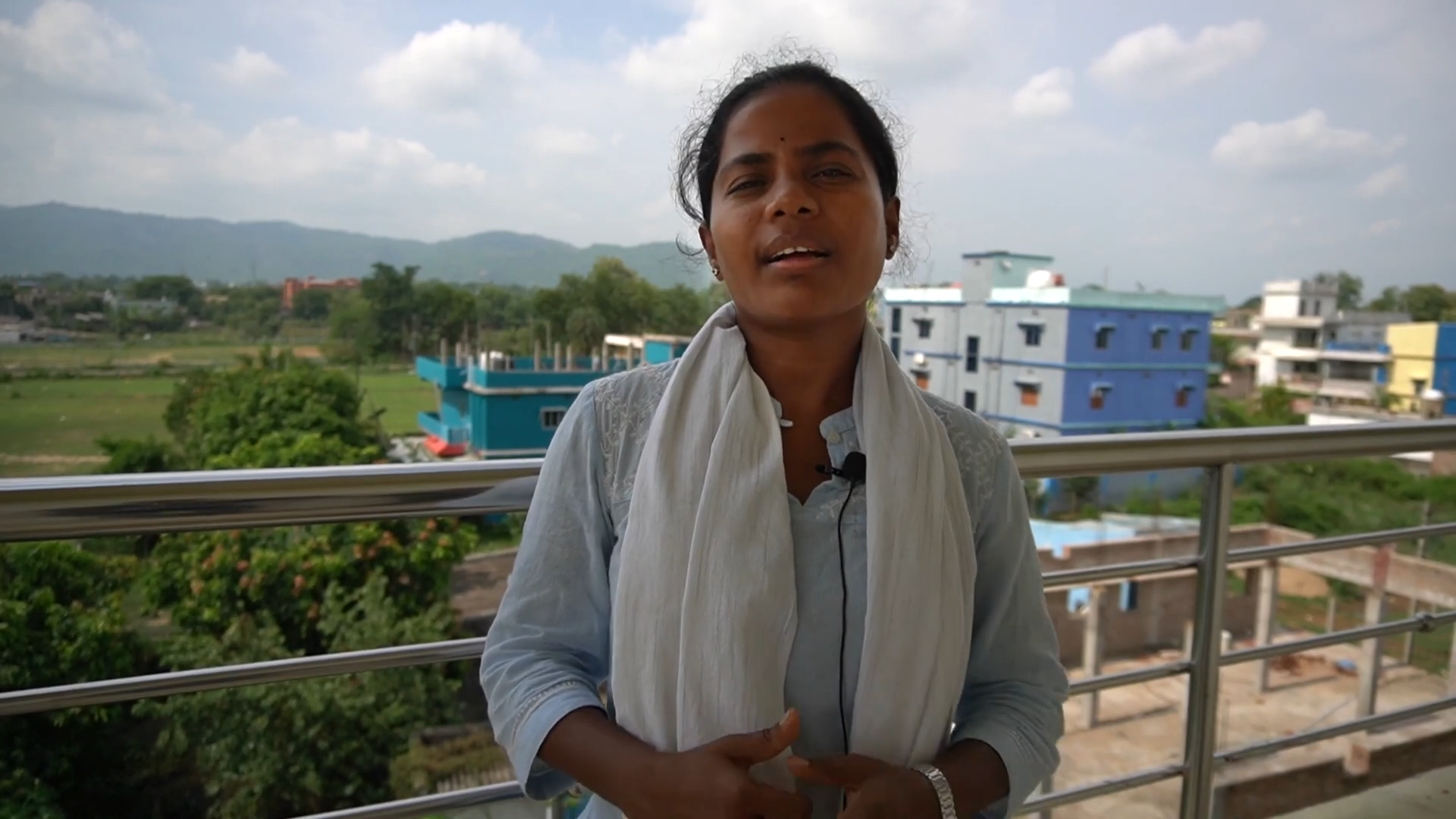2023-09-08
The filmmakers, girls and young women from communities, are telling authentic stories through on the ground reporting and smartphones.
For Indigenous Peoples who protect and live in the forests of India, their successes and challenges are too often invisible. India’s forest communities still face historical injustices and do not get equitable benefits from the entire value chain for their forest resources.
Yet, Indigenous Peoples are the guardians of the environment and the custodians of forest land. Their traditional techniques for preserving ecosystems are essential for life, livelihood, food security and have a beneficial impact well beyond their communities.
Authentic voices and stories from the communities themselves are often missing in the mainstream narrative of forest management and resources.
The Jungle Ranis (Queens) from Malkangiri in Odisha are making the invisible visible. An initiative led by a dynamic group of young Indigenous women, Jungle Ranis use video storytelling to shed light on the relationship between forests and communities.

“The volunteers are living in the villages and noting the day-to-day developments of the community,” says Apurva Duddu, Governance Specialist at the Indian School of Business (ISB). “What better way to create a platform for the community to share their stories? It is a community initiative led by women.”
With a focus on preserving Indigenous wisdom and ecological harmony, the storytellers delve into the heart of forested landscapes, sharing narratives that emphasise the vital interplay between people and their natural surroundings.
The beginning of the reign
In partnership with the Tenure Facility and its Initiative on the forest economy (IoFE), ISB collaborated with AJK Mass Communication Research Centre at Jamia Millia Islamia to train 40 female volunteers on mobile-based short filmmaking and storytelling.
Jayanti Baruda, the Founder of the Bado Didi Union (Big Sister Union) and the first female Indigenous journalist in Malkangiri, was instrumental in encouraging girls and young women to volunteer for the training. Baruda is passionate about giving marginalised people a platform where Indigenous girls and women can report from their communities and share their stories.

Founder of the Bado Didi Union, Jayanti Baruda, speaking in one of Jungle Rani's video.
Equipped with the skills and knowledge necessary to create impactful films that explore the interconnected relationship between forest resources and Indigenous communities, the ‘Jungle Ranis’ were born.
Abhijeet Parmar, Researcher and Technology Lead at ISB, recalls one of the first results, “I was touched by the simplicity of the narrative. Bhavani filmed a Palm tree and her relationship with the tree and the fruits it provides. She talks about the benefits and the uses of all the parts of the tree.”
By amplifying these often unheard voices, the initiative aims to foster understanding, conservation, and appreciation for the delicate symbiosis that exists between forests and the Indigenous People who call them home.
"What better way to create a platform for the community to share their stories? It is a community initiative led by women."
Using film to amplify their voices
The Jungle Ranis have now taken the initiative to assert their individual voices and establish their own presence on social media platforms. And they have a mascot, Aaranya. In December, they plan to organise the first edition of the flagship film festival “AdiRang” featuring the best films shedding light on the myriad of colours and complexities that exist in their daily lives. Next, they will take the films to India’s capital, New Delhi, highlighting Indigenous narratives and engaging industries, politicians, and the public about crucial environmental and Indigenous concerns.
India has a robust legal framework for empowering local communities living in or near forest
areas – the Community Forest Resource Rights provision in the 2006 Forest Rights Act (FRA).
But implementation is dependent on state government actions and budgets.
There are an estimated 300 million forest dwellers* in the country, whose livelihoods and survival depend on the forests. For most, access to forests or forest resources is a daily challenge.
Odisha became the first state government to commit to run large scale implementation of IoFE , collaborating closely with Tenure Facility partners ISB and Vasundhara. The Jungle Ranis are the fruits of that collaboration and will to give the forest communities a much-needed platform for content with grassroots sources.
“We work in three states of India – Himachal Pradesh, Jharkhand and Odisha – and the underlying issues are similar for the communities living in forests,” says Duddu. “The films will be presented to communities in other states, so they can see and hear the experiences of other communities facing the same challenges, [providing] a platform to share and learn from each other.”
Given the diverse collaboration, initial achievements and their plans, the Jungle Ranis’ success is a harbinger of better things to come. It is a community’s efforts and collective action that will help create a platform for community voices, and the Jungle Ranis are taking charge.
*Rights and Resources Initiative, Vasundhara, Natural Resources Management Consultants. 2015. Potential for Recognition of Community Forest Resource Rights Under India’s Forest Rights Act. A preliminary Assessment states that “Through the FRA, at least 150 million forest dwelling people have gained the opportunity to have their rights recognized over a minimum of 40 million hectares (mha) of forest land that they have been managing, using, and interacting with in more than 170,000 villages.”
Articles